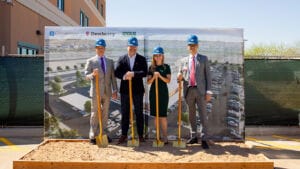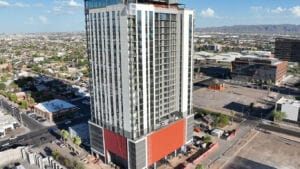For the last six or seven months, lease modifications and amendments have been abundant. While many of the modifications and amendments have been pandemic related and frustrating for the parties, the good news is that like lease renewals or assignments, modifications and amendments provide a chance for landlords to correct any mistakes made in the original lease. It is also a good opportunity to address any changes that may have occurred since the original lease was executed. Cleaning up earlier mistakes will pay dividends if litigation ever ensues over the lease or its terms. The following are five lease provisions that ought to be reviewed and addressed if the opportunity arises:

1. Confirmation that Things Are Up to Date: Now is a good chance for the landlord to demand copies of certificates of insurance and have the tenant confirm the status and amount of any prepaid rent and security deposit. Tenants may also request any delayed CAM reconciliations. Additionally, the parties should make sure that the addresses for notice are still correct.
2. Force Majeure: As a landlord, do you want to modify this provision? If so, you will want to address the COVID-19 virus, and to exclude it and all future pandemics in your new force majeure provision. No matter the scope of your force majeure clause, you will also want the payment of rent to be an affirmative obligation irrespective of a tenant’s assertion of a force majeure defense. Tenants will obviously want to have broad force majeure language and to have the opportunity to stop paying rent during the event of force majeure.
3. The Parties: Be sure that the parties identified in the lease and guaranty are the same parties that are executing the amendment or modification. If they are not, ask why. If you need the tenant or guarantor to execute a corporate resolution outlining their authority to execute any new documents, ask for one. Also, be sure that the parties named in the introductory paragraph of the lease or modification are reflected in the signature blocks.
4. Cure Periods and Defaults: Consider shoring up cure and default provisions. If possible, eliminate cure and grace periods and try to fall back on Arizona law for the common default period for non-payment of rent. For non-monetary defaults, shorten timeframes to ten days for a tenant to commence the cure.
5. Continuing Obligations and Non-Liability: The modification offers the opportunity for the landlord to insist that the tenant acknowledge that, as of the date of the modification/amendment, the landlord is not in default of the lease terms. In addition, tenants and guarantors should be required to acknowledge their continuing liability under the lease and guaranty, as applicable. There are several other provisions that may need to be addressed in your lease amendment or modification. For a complete list of items that may need to be “cleaned up” with your commercial lease, feel free to email me for a modification checklist at patrick@mandglawgroup.com or call 602-533-2840.
Patrick R. MacQueen is a founder of MacQueen & Gottlieb, PLC.




